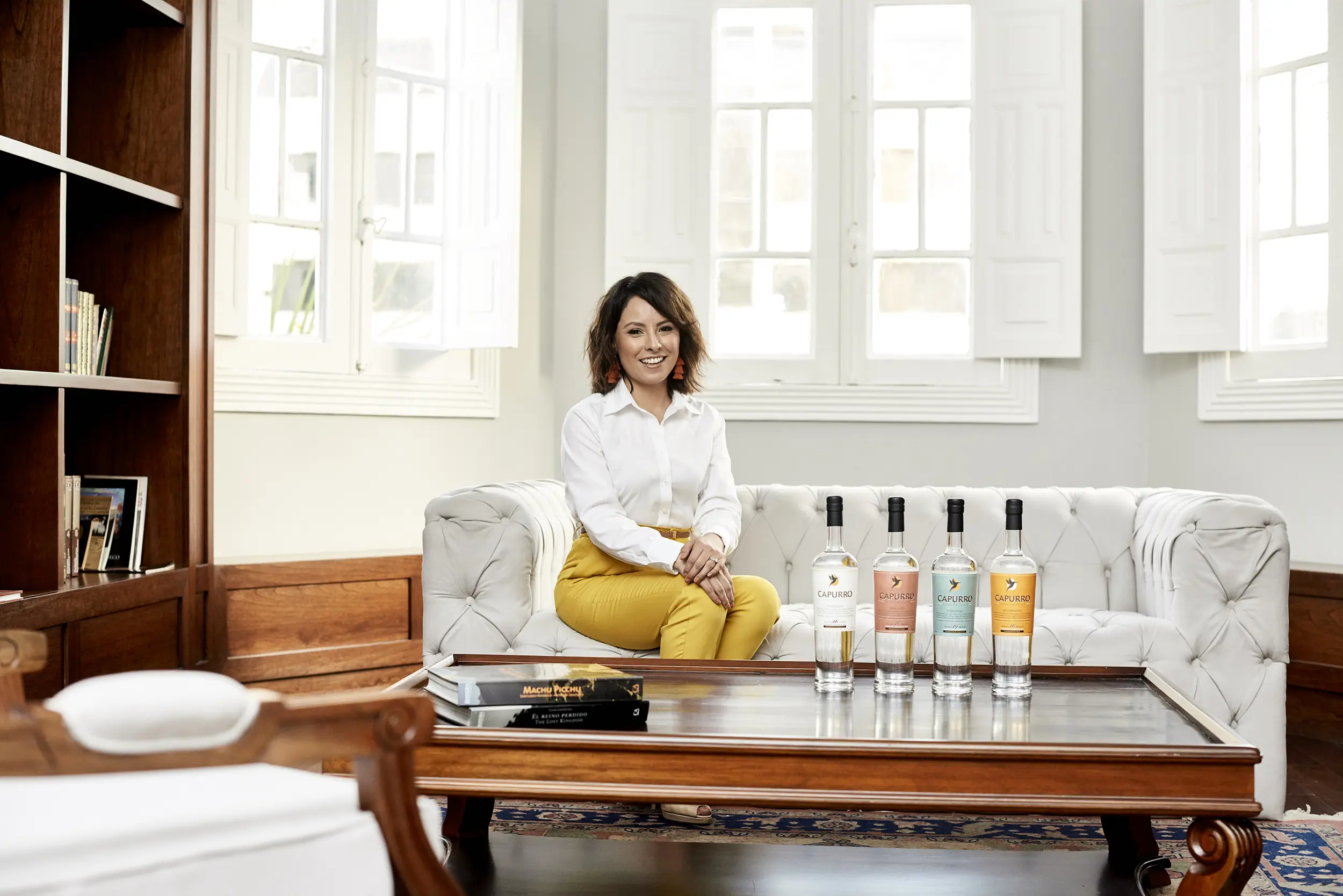No Longer a Boys' Club
How female makers are paving their own way in the industry
Written by Lesli Gegen
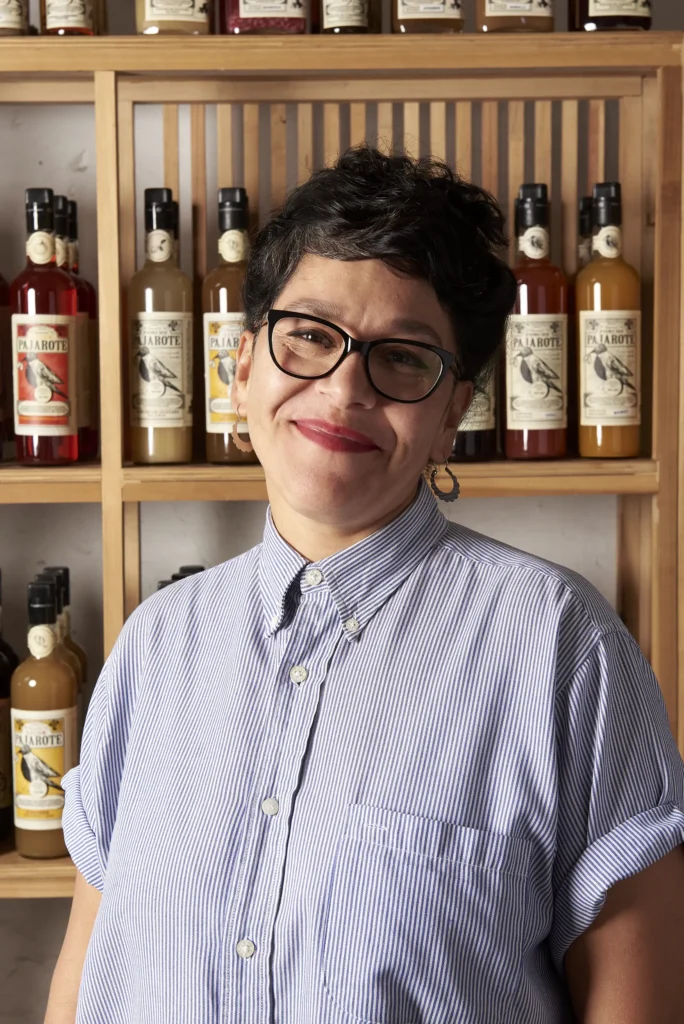
Mónica Leyva. Photo courtesy Pajarote.
The beverage industry may have historically been a “boys’ club,” but the energy is shifting, and more women are taking the helm in crafting some of the industry’s most delicious craft beverages worldwide.
In fact, three of the female makers in Elite Brands’ portfolio are helping to pave the way for the shift. The Guadalajara, Jalisco-based Pajarote was started by Mónica Leyva more than a decade ago; Romina Scheufele is a fifth-generation distiller of the Peruvian Capurro Pisco; and Paula Uribes is carrying on her parents’ legacy with Calzadilla wine.
More than 1,000 miles south of Colorado in Guadalajara, Mónica Leyva founded Pajarote eleven years ago to carry on the Mexican tradition of ponche – essentially, punch – in the form of handcrafted liqueurs. While the women in her family have produced these liqueurs for generations, they remain truly unique, even within Mexico as they are rarely consumed outside of the central and southern regions.
When she started Pajarote, Mónica produced ten bottles in her kitchen at home. While her production is much bigger now, she has maintained the same processes and standards. She doesn’t use any preservatives or add any unnecessary additives or artificial flavors. “It has been an incredible achievement of ours to stabilize the product and produce on a large scale without having to follow the norms of today’s food industry,” she shared.
The Pajarote liqueurs are made with fresh fruits and the resulting flavors are truly unique and powerful because they actually taste like guava and tamarind, rather than artificial flavors. “They are a hug, full of flavor,” Mónica describes. In the case of their “CHOCOLATE!,” they use 100% cocoa and sweeten with piloncillo, a dark-brown unrefined cane sugar. Their craftsmanship means that their liqueurs often take months to make, as is the case with their DIX Liqueur, which uses a handcrafted base of ginger, clove and cardamom macerations.
Given that her family has been making these liqueurs for generations, when asked about balancing tradition and trying new things, Mónica has an interesting take. “Gastronomic traditions are part of the historical taste of a town or community. In that sense, I think the possibilities are infinite and constantly under construction,” she explains.
Further south, in Ica, Peru, Romina Scheufele is carrying on a family tradition as a fifth-generation Pisco distiller. Pisco, a denomination of origin spirit, produced in Peru, is a type of brandy, as it is copper pot distilled from grapes.
While Pisco is a complex and nuanced beverage, Romina notes that it’s easy to discern a good Pisco from a bad Pisco. “It all comes down to the finish. Is it long, clean and complex? Or is it short, disappears, and burns? If it’s the latter, questionable production methods are being used.” The questionable production methods are typically a result of trying to meet bottom dollar prices to meet the demand and often makes pisco taste like bad grappa.
Romina sees her role as balancing between tradition and modernity and bringing Capurro to the next generation.
In order to continue to lean into tradition, Capurro maintains its old school production methods, which means everything is organic, biodynamic and sustainable. And while they could use those buzzy words, they don’t. They call it “cultural farming,” because it’s been handed down from generation to generation.
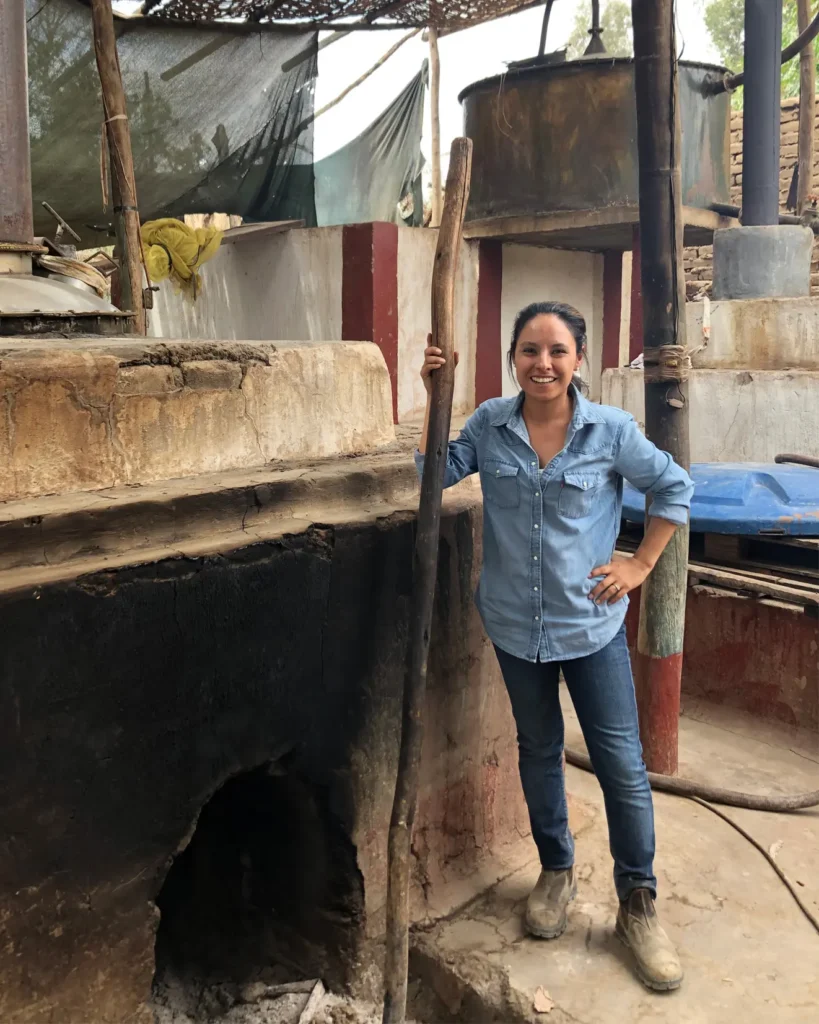
Romina Scheufele, owner, Capurro Pisco. Photo courtesy Capurro.
Fifty years ago, the Capurro family used a traditional method of grape pressing in a stomping pool. This process took 24 hours, during which the grapes would macerate in a large pool about 3 feet deep. However, when machinery was introduced for pressing grapes, the crucial maceration process that occurred during stomping was lost. As Romina prepared to take over as head distiller in 2019, she studied decades of her grandfather’s production journals and reintroduced the maceration process. Now, Capurro macerates their grapes for 24 hours before gently pressing them, enhancing the extraction of phenols and aromatics from the grape skins.
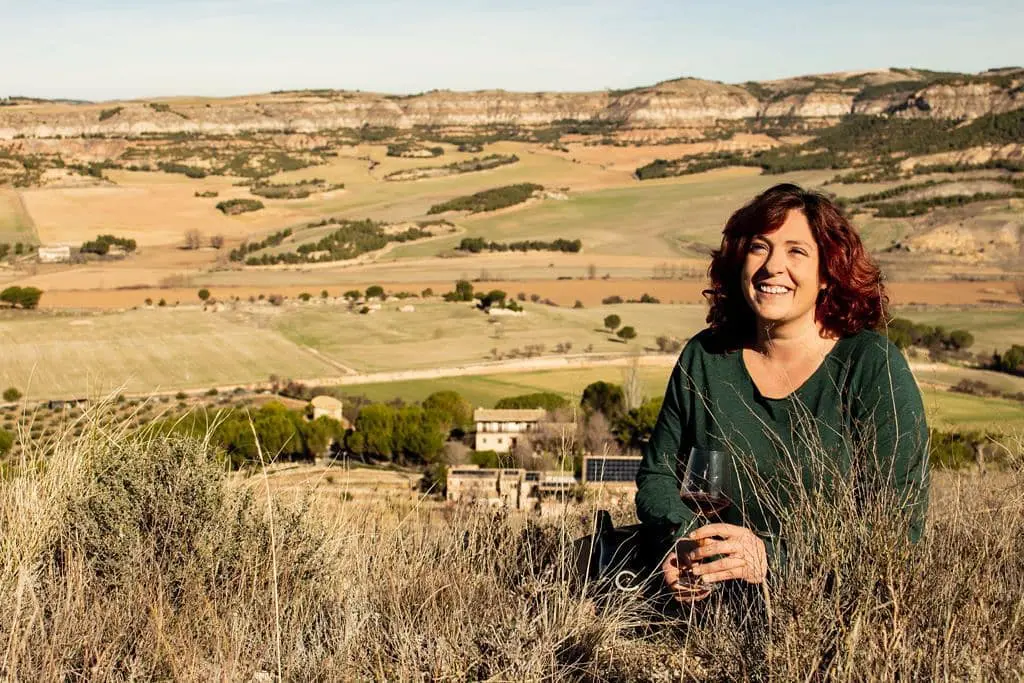
Paula Uribes, owner, Pago Calzadilla. Photo courtesy Calzadilla.
Across the Atlantic, about 75 miles from Madrid, Spain, Paula Uribes is dedicated to crafting exceptional wines at Calzadilla.
In 1979, her parents founded the winery when they planted one acre of Garnacha grapes. They started small, as they had to keep up with their day jobs. Her father was an architect, and her mother was a chemist. Thirteen years later, they produced their first vintner of 3,000 bottles and named the winery Calzadilla, a nod to the history of the region and the old Roman roads.
Today – while their production has grown to three hectares of vineyards that produce six different wines, five reds and one white – their production methods remain the same. Everything is done by hand; they produce their own compost; and they don’t use any pesticides. Instead, they rely on cinnamon and herbs to protect their vines and work each plot of land separately, as each one is at a different altitude with a different orientation.
“The idea of Cazadilla was to be part of the land, not to be an imposition on the land,” Paula explains. “This is why we have been practicing in an organic way, because it was the way that my parents understood it. Now ‘organic’ is trendy and there’s a certified stamp you can get for the back of the label, but for us, it was always about the natural way to make wine.”
Calzadilla is known for their aging. While it’s not common in Spain, many of their wines are aged in bottles between five and ten years, giving them a unique, mature flavor that’s more complex than many wines produced in the region.
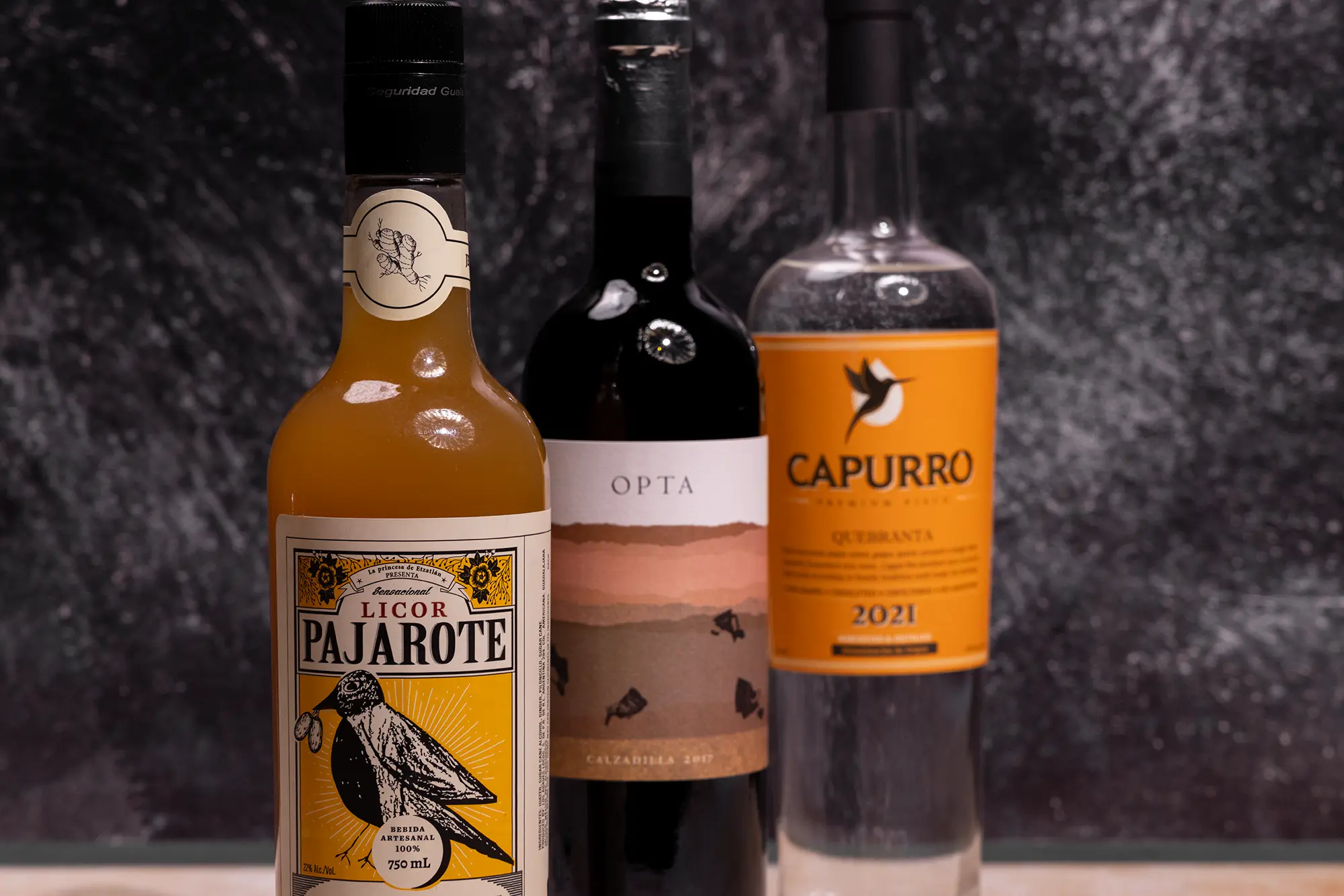
The fact that these women are producing all over the world means that their experiences as women in the industry have also been vastly different.
In Peru, Romina acknowledges that it’s very rare for a woman to take over a business like Capurro in Peru. While her grandfather was always there to cheer her on in the times when she doubted herself, she wasn’t met with the same enthusiasm by the industry in Peru. “It was almost reverse culture shock,” she explained. “Being born in Peru, but raised and educated in the U.S., I found it difficult to get my voice heard down there,” describing how people would default to talking to her husband, who co-runs Capurro, instead of her.
Conversely, for Mónica and Paula, women producing wine and liqueur is what they’ve always known, and they’ve always found acceptance as a female in the industry.
“My mom always talked about the pomegranate ponche that her mom made for parties or special occasions,” shared Mónica. “So, it was something that her mother made, and that I now make. I am very proud to share it now through Pajarote.” In fact, female influences on both sides of her family are given a tributary nod by Pajarote. Her paternal grandmother, Gertrudis, was an artist who she has dedicated the label and flavors of “Cordoval DIX” to, as she always signed her work under the pseudonym “Dix.”
While Mónica acknowledges that being a woman in Mexico, and other countries around the world, involves issues of security and social inequality, she has not seen it impede her ability to make Pajarote successful.
For Paula, as her mother was a chemist, she was really the driving force behind the growth of Calzadilla and a great role model for Paula to follow. “As women, we never felt different, and no one has tried to treat us differently,” she explained.
Thankfully, Romina has already seen a significant shift in the acceptance of women in the industry in Peru. She talks about women finding their voices and how her team today is predominantly female. Romina credits much of this to the adoption of technology and the introduction of smartphones in Peru, which has opened up a whole new world.
“Today, smartphones are more financially accessible, and we have apps like Instagram, TikTok and WhatsApp, that connect us to the world,” she explains. “Women can see ‘hey, they have these rights in Europe. Why don’t we have them here?’ People started vocalizing that and organizing for those rights.” She describes it as another level of globalization, where modernization has given a new voice to many people. With that, it’s changed perspective in Peru relatively quickly.
Moving forward, Mónica sees her femininity as a strength as she continues to grow Pajarote. “Right now, I’m at a pivotal moment as we work to market our product on a larger scale, both in the Mexican market and abroad, which will require analyzing, organizing, streamlining and communicating, both inside and outside of the company. I bet success will come from empathy and gentleness, values that are considered ‘feminine.’”
